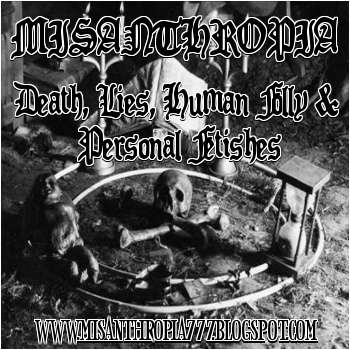Last updated at 06:08 GMT, Tuesday, 15 June 2010 07:08 UK
By Zubair Ahmed
BBC News, Mumbai
Slowly but steadily, a decade-old business around the dead and universally despised dictator Adolf Hitler is emerging as a small-scale industry in India.
Books and memorabilia on the German leader's life have found a steady market in some sections of Indian society where he is idolised and admired, mostly by the young.
The numbers are small but seem to be growing.
Latest reports say Bollywood is now planning to cash in. A film - Dear Friend Hitler - is due to be released by the end of the year, focusing on the dictator's relationship with his mistress Eva Braun.
It's hard to narrow down what makes the dictator popular in India, but some young people say they are attracted by his "discipline and patriotism".
Most of them are, however, quick to add that they do not approve of his racial prejudices and the Holocaust in which millions of Jews were killed.
But the truth is that books, T-shirts, bags and key-rings with his photo or name on do sell in India. And his autobiography, Mein Kampf, sells the most.
'Bestseller'
Jaico, the largest publisher and distributor of Mein Kampf in India, has sold more than a 100,000 copies in the last 10 years.
Crossword, an India-wide chain of book stores, has sold more than 25,000 copies since 2000 and marketing head Sivaram Balakrishnan says: "It's been a consistent bestseller for us."
And demand seems to be growing. Jaico's chief editor RH Sharma says: "There has been a steady rise of 10% to 15% in the book's sale."
Until two years ago, a typical Mumbai (Bombay) bookstore sold 40-50 copies of Mein Kampf a year. Now the figure is more like several hundred copies annually.
The more well-heeled the area, the higher the sales. For example, the Crossword outlet in Mumbai's affluent Bandra district sells, on average, three copies a day.
The book has several editions and is available in vernacular Indian languages too. Mannyes Booksellers in the western city of Pune keeps at least four editions. There are at least seven publishers now competing with Jaico.
Global sales figures for Mein Kampf are hard to come by, but the book sells well in other parts of the world too.
In the US, it sold 26,000 copies last year 2009. In 2005 it sold 100,000 copies in Turkey in just a few months. The Arabic imprint is popular in the Palestinian territories.
Mein Kampf is published by Random House in the UK but the company would not give sales figures to the BBC.
'Positive and negative'
Nearly all the booksellers and publishers contacted in India say it is mainly young people who read Mein Kampf.
It's not just the autobiography - books on the Nazi leader, T-shirts, bags, bandanas and key-rings are also in demand.
A shop in Pune, called Teens, says it sells nearly 100 T-shirts a month with Hitler's image on them.
Prayag Thakkar, a 19-year-old student in Gujarat state, is one of them: "I have idolised Hitler ever since I have had a sense of history. I admire his leadership qualities and his discipline."
The Holocaust was bad, he says, but that is not his concern. "He mesmerised the whole nation with his leadership and iron discipline. India needs his discipline."
Dimple Kumari, a research associate in Pune, has not read Mein Kampf but she would wear the Hitler T-shirt out of admiration for him. She calls him "a legend" and tries to put her admiration for him in perspective: "The killing of Jews was not good, but everybody has a positive and negative side."
Shilpi Guha says she started reading the book but could not finish it and she wouldn't like to dwell on the dictator's negative side.
In the past, a couple of right-wing Hindu leaders have also expressed their admiration for Hitler.
But young Indians' fascination for him has been explained succinctly by academic Govind Kulkarni: "The youth look for a hero, a patriot, and Hitler was a committed patriot. He is seen as someone who can solve problems. The young people here are faced with a lot of problems."
Mr Kulkarni says he believes the young are gullible and fail to see the sinister side of Hitler.
"Young people have no sense of history. The book is thick and not easy to understand unless you know the history of Germany," he says.
Amit Tripathi, a Mumbai-based scholar, read the book a long time ago but just out of curiosity.
"I didn't find the book inspiring at all. It was interesting to read how he coped with his days of struggle, but his ideology of racial purity smacked of racism."
From: http://news.bbc.co.uk/2/hi/south_asia/8660064.stm
Friday, June 18, 2010
Subscribe to:
Post Comments (Atom)












 "He who can, does. He who cannot, teaches."
"He who can, does. He who cannot, teaches."



 "Being is substance and life; life manifests by movement; movement is perpetuated by equilibrium; equilibrium is therefore the law of immortality.
"Being is substance and life; life manifests by movement; movement is perpetuated by equilibrium; equilibrium is therefore the law of immortality.


 "The doctrine of equality!... But there exists no more poisonous poison: for it seems to be preached by justice itself, while it is the end of justice.... "Equality for equals, inequality for unequals" that would be the true voice of justice: and, what follows from it, "Never make equal what is unequal."
"The doctrine of equality!... But there exists no more poisonous poison: for it seems to be preached by justice itself, while it is the end of justice.... "Equality for equals, inequality for unequals" that would be the true voice of justice: and, what follows from it, "Never make equal what is unequal."



No comments:
Post a Comment
Note: Only a member of this blog may post a comment.